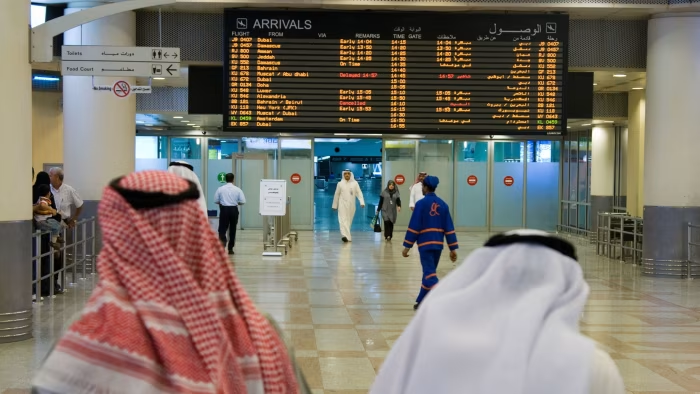In a startling and controversial move, the Kuwaiti government has revoked the citizenship of nearly 42,000 people, rendering them stateless. The mass denationalization has shocked the public, shaken the country’s legal system, and drawn strong criticism from human rights organizations around the world.
The crackdown, which began quietly in mid-2024, gained public attention after several high-profile cases of detentions and deportations made headlines. Many of those affected say they received no prior notice, legal representation, or chance to appeal. Within hours, they were no longer citizens of the country they had lived in—and in many cases, served—for generations.

This move comes in the wake of growing authoritarianism in Kuwait. In May 2024, Emir Sheikh Meshal Al-Ahmad Al-Jaber Al-Sabah suspended the country’s parliament and assumed full executive control, citing the need for reform. Since then, political repression has intensified. The recent revocation of thousands of nationalities is now being seen as one of the most aggressive and alarming actions by the state in decades.
Government’s Reasoning: Fraud and ‘National Identity’
Kuwait’s Ministry of Interior has claimed that the revocations are part of a larger plan to clean up the national registry. According to officials, many of the 42,000 individuals were allegedly granted citizenship based on falsified documents or through illegal means over the past decades. The government insists that this process is legal, justified, and in line with efforts to protect the country’s “national identity.”
Officials have not provided detailed evidence to support the fraud claims. Nor have they offered a clear explanation about why the revocations happened so suddenly or without judicial process. Most of the individuals affected belong to the Bidoon (stateless people in Kuwait) or come from families that migrated from neighboring countries generations ago.
The state’s justification has done little to calm growing outrage. Critics argue that the move is politically motivated and targets marginalized communities. Some have called it a form of “ethnic cleansing” under the guise of national security.
Personal Stories of Loss and Shock
For many, the revocation of citizenship was more than just a legal change—it was a life-altering moment.
Faisal Al-Azmi, a 33-year-old businessman, was returning from a trip abroad when he was stopped at the airport in Kuwait City. Immigration officers took his passport and told him he was no longer a Kuwaiti citizen. He was detained for 48 hours before being released without explanation.
“I was born here, my parents were born here, my children go to school here,” Faisal said. “I’ve never known any other home. And now, in a moment, I am stateless.”
Another affected individual, Amina, a schoolteacher, described the moment she realized her ID card had been deactivated. “I couldn’t access my bank account, my health insurance stopped working, and my employer told me I couldn’t teach anymore. It’s like I was erased overnight.”
Stories like these are becoming increasingly common as more people come forward to share their experiences. Many say they are afraid to speak publicly out of fear of arrest or further retaliation.
What It Means to Be Stateless
Losing one’s citizenship can be catastrophic. Stateless individuals cannot vote, hold a passport, legally work, access government healthcare or education, or even marry legally in some countries. For those affected in Kuwait, life has become extremely uncertain.
In many cases, stateless people are treated as illegal residents, despite being born and raised in the country. Some are forced to live in legal limbo, constantly under threat of detention or deportation.
Human rights organizations have long warned about Kuwait’s treatment of stateless people, particularly the Bidoon community. The Bidoon have been in Kuwait for generations but were not registered during the country’s independence in 1961. For decades, they have fought for recognition, often facing systemic discrimination and exclusion.
Now, experts fear that this new wave of denationalization could deepen the crisis and set a dangerous precedent for other countries.
Growing International Outrage
Global rights groups, including Amnesty International and Human Rights Watch, have condemned the mass revocations. In statements released last month, they accused Kuwait of violating international law, which prohibits arbitrary revocation of citizenship—especially when it leads to statelessness.
“Stripping people of their nationality without due process is a severe violation of human rights,” said one Amnesty spokesperson. “This is not just about passports—this is about livelihoods, identity, and dignity.”
The United Nations High Commissioner for Refugees (UNHCR) has also called on Kuwait to halt the revocations and reinstate the rights of those affected until proper legal channels are established.
Meanwhile, the United States and European Union have expressed concern, urging the Kuwaiti government to respect international norms and provide clear evidence if fraud is being alleged.
So far, the Kuwaiti government has not responded to these calls. The Emir’s office has remained silent, and domestic media coverage has been limited due to strict censorship laws.
Experts Warn of Long-Term Damage
Legal experts warn that Kuwait’s mass denationalization could damage the country’s reputation and further destabilize the Gulf region.
“This is not just a legal issue—it’s a humanitarian crisis,” said Professor Lina Al-Mutairi, a Gulf politics expert. “You cannot just remove people from the national registry as if they are numbers. These are real people with families, homes, and histories in Kuwait.”
Some analysts also believe the crackdown could backfire politically. Already, opposition groups are beginning to organize outside Kuwait, calling for international sanctions and UN intervention. There are concerns that the move could create a generation of disenfranchised youth, potentially leading to unrest or radicalization.
What Comes Next?
As of now, there is no clear legal process for appealing the revocations. Many of those affected are living in fear, unsure of their future. Lawyers representing stateless individuals say they are preparing to file petitions at international courts, but such efforts could take years.
Meanwhile, Kuwait continues to face internal pressure. Family members of those affected have started organizing small protests, despite government crackdowns on demonstrations. Civil society groups are demanding more transparency and the reinstatement of basic legal rights.
The situation remains fluid, but one thing is clear: Kuwait is entering a new and deeply troubling chapter in its history.
Whether this move will strengthen the government’s control—or ignite broader resistance—remains to be seen. But for the 42,000 people now stateless, the consequences are already painfully real.
Baker Hughes Marks Major Milestone in Saudi Arabia with Dammam Facility Expansion



